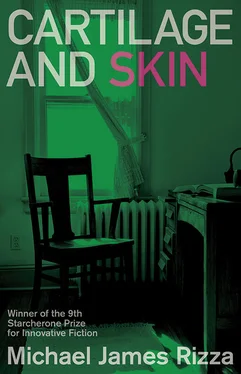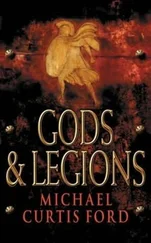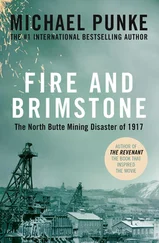Michael Rizza - Cartilage and Skin
Здесь есть возможность читать онлайн «Michael Rizza - Cartilage and Skin» весь текст электронной книги совершенно бесплатно (целиком полную версию без сокращений). В некоторых случаях можно слушать аудио, скачать через торрент в формате fb2 и присутствует краткое содержание. Год выпуска: 2013, Издательство: Starcherone Books, Жанр: Современная проза, на английском языке. Описание произведения, (предисловие) а так же отзывы посетителей доступны на портале библиотеки ЛибКат.
- Название:Cartilage and Skin
- Автор:
- Издательство:Starcherone Books
- Жанр:
- Год:2013
- ISBN:нет данных
- Рейтинг книги:4 / 5. Голосов: 1
-
Избранное:Добавить в избранное
- Отзывы:
-
Ваша оценка:
- 80
- 1
- 2
- 3
- 4
- 5
Cartilage and Skin: краткое содержание, описание и аннотация
Предлагаем к чтению аннотацию, описание, краткое содержание или предисловие (зависит от того, что написал сам автор книги «Cartilage and Skin»). Если вы не нашли необходимую информацию о книге — напишите в комментариях, мы постараемся отыскать её.
Meanwhile, he finds himself becoming involved with a kind, generous divorced woman named Vanessa Somerset. She seems to him receptive, if not eager, to love. Little does she know, because he does not tell her, that he is on the run, his life is in shambles, and an absurd horror lurks close by, ready crash down on them.
Cartilage and Skin — читать онлайн бесплатно полную книгу (весь текст) целиком
Ниже представлен текст книги, разбитый по страницам. Система сохранения места последней прочитанной страницы, позволяет с удобством читать онлайн бесплатно книгу «Cartilage and Skin», без необходимости каждый раз заново искать на чём Вы остановились. Поставьте закладку, и сможете в любой момент перейти на страницу, на которой закончили чтение.
Интервал:
Закладка:
The man went back inside. A floodlight came on and shone on the driveway. Ray paused for a moment, leaning on the shovel, looking at the light. The air was redolent with the odor of chimney smoke. He began to work again, as steady and composed as a full-grown man. The boys separated and shoveled each end of the driveway, both working toward the light. This gave them extra time. Before they finished, the sky became completely dark. The man stood in the doorway, watching them; he might have been watching them all along. His face seemed less harsh now, as if he’d had some time to relax, maybe with a few glasses of wine or something harder, for he stepped out into the cold in his tee-shirt and came a few paces down the front walk in nothing but his socks.
Ray gave the other boy his shovel and walked toward the man.
“Does it look okay?” Ray asked.
“It’s real nice,” the man said, but he didn’t seem to notice the driveway at all. He handed Ray some money.
“Are you sure you want to give me this much?” Ray asked, already putting the bills into his pocket.
The man nodded.
“Thanks. That’s more than double.” Ray looked down at the man’s feet; then he took his headband off and stuffed it into his coat pocket.
“Apparently, he’s not visiting his aunt, after all. I just called there,” the man said. “I don’t know where he is.” He smiled and nodded again. His voice was flat, without urgency. “I don’t know where she took him. And my baby and my daughter. But I knew she would. I can’t blame her.”
“Sure,” Ray said, moving away. “Thanks again.”
“A woman needs a man, you know.”
“Of course.”
“She needs to be fucked.”
Ray nodded now. He turned and left the man standing on the walkway. When he reached the other boy, he took back the shovel and rested it on his shoulder. The two of them started down the driveway, out of the range of the floodlight and into the darkness, their voices vanishing first, and then their figures. Even so, the man remained outside on the walkway, looking after them.
Sometime past midnight, all the fires were most likely extinguished because not a trace of chimney smoke remained in the air. The neighborhood had shut itself down for sleep, except for the man’s house. Although it sat silently, the windows were lit up; every light was on in every room. The man was in the kitchen. He was sitting on the counter, slumped forward with his hands dangling between his legs. The tiny blanket that had been in the crib was now draped over the back of a kitchen chair. The hood exhaust whirred loudly, apparently in an effort to suck out of the room the odor of vomit. There was vomit in the sink. The man sat for a long time; then he slipped off of the counter and staggered to the table. He picked up a cordless phone. He began talking before he even dialed or held the phone up to his face. With his voice steady and flat, he continued talking as the phone rang. He was in midsentence when someone answered.
“—everything here in the house,” he was saying.
“Kyle,” a woman said.
“She’s just got to come for it. Everything is here for her.”
“Get some rest now. I’ve called the police. They’re searching the roads.”
“If she’s there,” the man said, “tell her I don’t blame her, and everything is here waiting for her. Everything I’ve ever made, every cent I ever earned, is hers. I want none of it.”
“Kyle, go to sleep now,” the woman said. “Please go to sleep. You can’t keep calling me.”
“I can go away. I can leave instead of her. It’s easier that way because of the kids and all.”
“Believe me.” The woman was crying now. “She’s not here. She never showed up.”
“Tell her—” he began, but he stumbled, and the phone fell from his hand.
V
In a room dimly lit by a tall, freestanding lamp, the man, no longer in the pea coat but still in his boots, stood with his back against the wall and seemed to be quietly inspecting his surroundings. He might have been waiting for something to happen, for something to move, but the room was still. It was a meagerly furnished apartment, with a kitchen sectioned off by a counter and with a narrow bathroom behind a narrow door. The only thing that might have moved was the boy, but he appeared as good as lifeless on the bed. It was pushed up against an empty bookshelf and an old-style cast-iron radiator, though not long before, in all likelihood, the bed had been beneath the single window, where the floor appeared conspicuously bare. The blinds were closed, and a dark bath towel was tacked to the window molding. The man stepped into the center of the room, as if he were about to do something but suddenly checked himself. He appeared to be waiting to move. After a while, however, he went to the bed and raised the blanket. The boy was on his back under a white sheet. The man covered him again with the blanket, so just the boy’s face was exposed. The man gathered his coat from the floor, shut off the tall lamp, and left the apartment.
He was gone for a long time. At one point, a commotion occurred in the hallway, angry screaming and a woman crying, but the boy slept through it. The room was so dark — filled with the same stale, thick, eternal darkness of a cave or a tomb — that if not for the sound of a random cockroach scuttling across the wooden floor, the stillness would have been thorough and unbroken. When the man finally returned, nothing at all had changed, so it might have been that time itself hadn’t moved either, as if in one motion the man had merely walked out of the room and then back into it. He took a brown bag out from beneath his coat and set it on the corner of the bed. He threw his coat against the wall, walked back to the door, and jiggled its locked handle. He moved slowly, setting a metal folding chair beside the bed, then making several trips to the kitchen, carrying only one thing at a time, though the items were small: a dish towel, a wooden cutting board, a plastic grocery bag. He finally sat down on the chair, at the foot of bed. All the while he didn’t speak, and he didn’t look at the boy’s face. He tore open the paper bag, which contained a hammer and a pair of chisels. He held a chisel in one hand and the cutting board in the other, as if he intended to carve something out of the piece of wood. Yet he set the board on the bed. He then fished under the covers and drew out the boy’s foot, which looked like dead meat, completely drained of blood. The man stood up again and made another trip to the kitchen. He turned on one of the stove’s burners and rested the chisel’s blade in the small, blue flame. He came back with a few more dishtowels and half a bottle of vodka. The other half might have been in the man already or maybe in the torpid boy. Without sitting down, the man picked up the tools and then froze for a moment, as if listening to something far away. For the first time since he’d returned to the apartment, he seemed like he had no idea what he was doing. He placed the cutting board on the chair and studied it as though he doubted it belonged on the chair. He took a pack of cigarettes out of his breast pocket and emptied two cigarettes and a lighter onto the mattress. Squatting beside the bed now, the man tried to place the boy’s foot flat on the cutting board, and rather than move the chair closer, he pulled the boy by the ankle. The boy’s toes were as white as bone, expect for a rich purple spot beneath the big toe, which was already beginning to rot, and the purple seemed to promise that it would turn black and that the black would spread. The man still didn’t say anything or look at the boy’s face, and the boy still didn’t respond. The man took a swig of vodka and returned the bottle to the floor. As he positioned the chisel straight up from the base of the boy’s big toe, he seemed confused, sucking in his thin bottom lip, holding the upraised hammer, suspended and motionless, above his head. Then he moved the chisel to the smallest toe, while the arm with the hammer remained frozen. He didn’t look like he was trying to work up the courage, but genuinely confused. He spun the chisel halfway around, as if all along he’d been calculating whether it was better to have the flat or the beveled edge of the chisel at the base of the toe. He chose the flat edge and brought the hammer down with a solid thud, severing the tiny extremity and at the same time cracking the cutting board down the middle. He quickly dropped the tools. The boy still didn’t move, even as the man began to burn the wound with the lighter. Apparently, it was a bad idea because the raw flesh continued to bleed and the lighter extinguished and it wouldn’t re-light because of the blood. Maybe the man was simply experimenting with the lighter, or maybe he’d forgotten about the other chisel a few paces away in the kitchen, but at last he retrieved the chisel off of the burner, hastily wiped the wound with a dishtowel, and pressed the hot blade against the stump, holding it there for a little while longer after the sizzling had stopped. The man did all this calmly, in control. With the lighter now cast away, he repeated the process more swiftly with the next toes, working his way up to the larger ones, realizing, apparently, that there was no reason to raise the hammer so high. When one half of the broken cutting board became greased with blood, he replaced it with the clean second half, as if he’d planned beforehand to have it on reserve. He took a swig of alcohol between each operation, giving the chisel time to reheat in the fire. When only the big toe remained, he sat back on his heels. Four little, bloody nubs were in the plastic bag, along with several bloody dishtowels. Maybe it was the blood or the stench of roasted meat or even the vodka that caused the man to get up and stagger away from the scene. Kneeling on the bathroom floor, he gripped the sides of the toilet and heaved several times. Nothing came out. He sat back, breathing heavily, his face strained and red. Although he seemed as though he were composing himself, he suddenly leaned forward and vomited. He vomited several times, with a long pause, a sort of fake composure, between each spasm, and then after the bottom of his stomach came out — just a mouthful of something black and rancid — the man merely started to dry-heave again. Exhausted, he slumped against the wall. His hazel eyes were bleary, his mouth open in an idiot’s gape, as though his lips were numb. He flushed the toilet, rinsed his mouth in the sink, and continued to slump against the wall. Then he closed his eyes and didn’t move for a long time. When he finally woke up, once again nothing seemed to have changed, so as far as time was concerned, the man might have just closed and opened his eyes, without sleep or anything else occurring in the interval. He pushed himself up and crept back into the other room, approaching the bed slowly, with his head slightly cocked to one side, looking at the chair, the tools, and the blood, as if the entire scene itself were something that would wake up if he made too much noise. He squatted beside the bed again. The boy’s foot was beneath the covers now, so the boy must have moved. The man reached under and drew out the boy’s foot. Although he had seared the wounds, they had continued to bleed a little. The man took another swig of vodka. He picked up a cigarette from the bed and lit the cigarette with the stove’s burner, which had been left on the whole time, its heat cracking the wooden handle of the chisel. He needed to use a dishtowel to pick up the tool; he inspected it and then set it back in the flame. He moved without haste and smoked his cigarette down to the filter. His face looked waxen, his eyes tired, almost sorrowful. When he kneeled beside the chair again, he stared at the boy’s mutilated foot. The rest of the boy didn’t seem to matter to him, as if the boy’s mortality was never in question; or perhaps the man had already resolved that issue because he might have known that the boy was not almost dead but certainly drunk or drugged, or maybe because he believed that the boy’s life or death was no longer controllable and in meantime, just in case, the man would cure what he could, namely the boy’s foot. He picked up the chisel and the hammer, and readied himself to amputate the remaining toe. He positioned the blade on the knuckle, finding the weakest point, the cartilage beneath the skin. However, this time, motionless and suspended, his arm didn’t seem to be arrested by confusion, but by a lack of courage. He began to breathe faster and harder, and all of a sudden, he completely ceased to breathe at all as his arm swung fast and hard, not only severing the toe and splitting the piece of cutting board but also driving the chisel into the thin metal of the chair. Calm and without haste again, he finished the rest of the operation; he cauterized the wound, smeared some ointment on the entire mess, and lightly dressed it with gauze.
Читать дальшеИнтервал:
Закладка:
Похожие книги на «Cartilage and Skin»
Представляем Вашему вниманию похожие книги на «Cartilage and Skin» списком для выбора. Мы отобрали схожую по названию и смыслу литературу в надежде предоставить читателям больше вариантов отыскать новые, интересные, ещё непрочитанные произведения.
Обсуждение, отзывы о книге «Cartilage and Skin» и просто собственные мнения читателей. Оставьте ваши комментарии, напишите, что Вы думаете о произведении, его смысле или главных героях. Укажите что конкретно понравилось, а что нет, и почему Вы так считаете.












